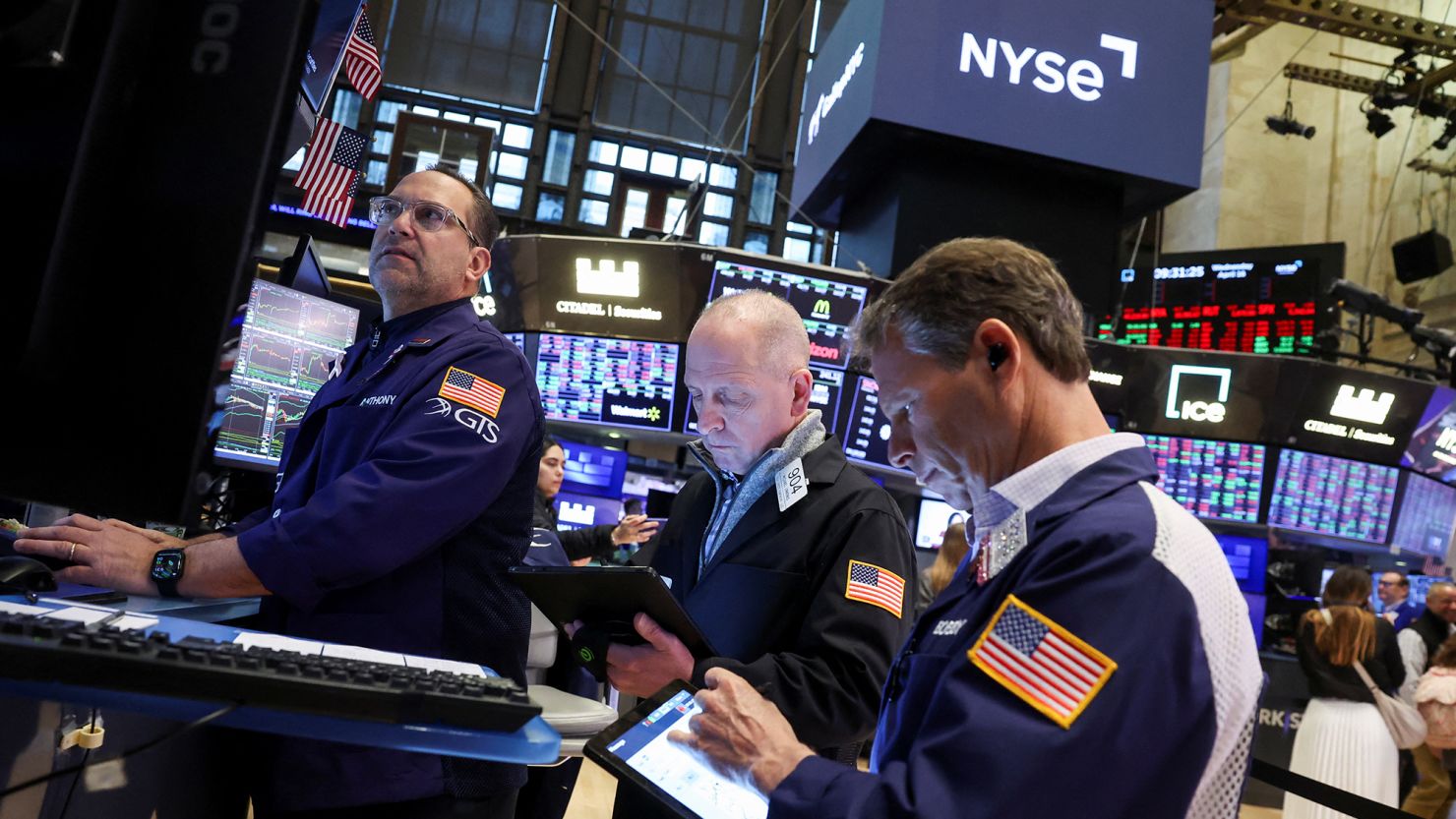US stocks fell Wednesday as investors remain cautious about President Donald Trump’s tariffs and an escalating trade war with China. All three major indexes moved lower after Federal Reserve Chair Jerome Powell said Wednesday the effects of Trump’s policies on the economy “remain highly uncertain.” The Dow was down 700 points, or 1.
7%. The broader S&P 500 fell 2.5%.

The tech-heavy Nasdaq Composite slid 3.5%. “The level of the tariff increases announced so far is significantly larger than anticipated,” Powell said at an event in Chicago.
“The same is likely to be true of the economic effects, which will include higher inflation and slower growth.” Wall Street has been mired in uncertainty as investors wrestle with the Trump administration’s back-and-forth on trade policy. Powell’s comments echo concerns that emerged in recent weeks as consumers and businesses grapple with Trump’s tariffs.
Spending at US retailers surged in March at the strongest monthly pace in more than two years as Americans rushed to beat Trump’s massive tariff hikes. Nvidia ( NVDA ) slumped more than 8% on Wednesday after the chipmaker said it would take a $5.5 billion hit because the US government placed new restrictions on the export of its artificial intelligence chips to China.
The export restriction on Nvidia is another step in the growing contest between the US and China for dominance in AI. That battle has heated up since January, when upstart DeepSeek caught Silicon Valley by surprise with its lower cost, ChatGPT-like AI model that has spurred an AI boom in China. “While we expect that trade talks will ultimately yield progress, the brinkmanship between the US and China looks set to continue in the near term,” said Solita Marcelli, chief investment officer for the Americas at UBS Global Wealth Management, in a note Wednesday.
Stocks are coming off slight losses on Tuesday. Investors are on alert for updates from the White House that might signal developments in trade policy. The Trump administration on Monday kicked off investigations into imports of pharmaceuticals and semiconductor chips (a precursor to potential tariffs), according to notices posted to the Federal Register.
Trump said on Sunday he would be announcing a tariff rate on imported semiconductors over the next week, adding that there would be flexibility with some companies in the sector. The S&P 500 on Monday had posted its first back-to-back gain in two weeks after the Trump administration announced exemptions on tariffs on electronics imported from China, in addition to Trump saying he is considering exemptions on tariffs on automakers. Despite the brief rally, the S&P 500 is still trading below its closing price on April 2, just before Trump initially laid out his “reciprocal” tariffs.
“In the interim, if the recent flip-flopping around US tariffs and their implementation (as with last Friday’s reprieve for tariffs on tech) is anything to go by, the only certainty is that market participants will be forced to endure a period of extended market uncertainty,” analysts at Citi said in a Monday note. The prospects for the global economy have taken a knock because of Trump’s trade war, according to a new report by the World Trade Organization. The WTO said it expects global gross domestic product to expand by 2.
2% this year. That growth would be 0.6 percentage points lower than the rate it would expect in a scenario with no additional tariffs.
The US dollar index, which measures the dollar’s strength against six major foreign currencies, slid Wednesday. The dollar index is coming off its biggest single-week decline since 2022. The yield on the 10-year Treasury note traded around 4.
3%, down from Tuesday, as investors snapped up government bonds. “Extreme fear” was the sentiment driving markets on Wednesday, according to CNN’s Fear and Greed Index . The index has been staunchly in “extreme fear” since the end of March.
This is a developing story and will be updated. CNN’s Bryan Mena and Tami Luhby contributed reporting..
















